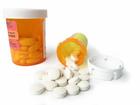Appetite suppressant brand names drugs
Fasting diets for weight loss may be right for obese persons who have serious weight-related medical problems. Rapid weight loss is the primary advantage of using these diets. This may be helpful in motivating the individual to continue with the program. This may help to support lifestyle changes which are needed for continued weight loss. While the FDA regulates how a medication can be advertised or promoted by the manufacturer, these regulations do not restrict a doctor's ability to prescribe the medication for different conditions, in different doses, or for different lengths of time. Several appetite suppressant medications are available to treat obesity. In general, these medications are effective, leading to an average weight loss of five to twenty-two lbs. above that expected with non-drug obesity treatments. Obesity often is viewed as the result of a lack of willpower, weakness, or a lifestyle "choice" - the choice to overeat and under exercise. The belief that persons choose to be obese adds to the hesitation of health professionals and patients to accept the use of long-term appetite suppressant medication treatment to manage obesity. |
Smart guide for online medicine buyers
Some websites that sell medicine can be not state-licensed pharmacies or aren't pharmacies at all; or may give a diagnosis that is not correct and sell medicine that is not right for you or your condition; or won't protect your personal information. The medicines that sold online can be fake (counterfeit or 'copycat' medicines); can be too strong or too weak, or have dangerous ingredients, or have expired (are out-of-date), or haven't been approved or checked for safety and effectiveness, can be made using non-safe standards, or not safe to use with other medicine or products you use. The same is true before using any medicine. Every choice to take a medicine involves thinking through the helpful effects as well as the possible unwanted effects. You need keep an up-to-date, written list of ALL of the medicines (prescription and over-the-counter) and dietary supplements, including vitamins and herbals, that you use--even those you only use occasionally. You have to know what to do if you experience side effects and when to notify your doctor, and know when you should notice an improvement and when to report back. Researchers say there are several important variables that affect individual differences in how drugs are metabolized, including race, gender, age, and health conditions. For example, people with kidney or liver disease don't eliminate drugs from their system as well as people who are healthy. Very young children and older people have slower drug metabolism than others, and women may metabolize drugs differently than men in some cases. |
Women's pain and discomfort from premenstrual syndrome
As estrogen levels drop and remain low during menopause, the risk of developing osteoporosis increases. The risk is greatest for slender, white or light-skinned women. You can help prevent osteoporosis by getting enough vitamin D through sunlight or a daily multivitamin, eating a diet rich in calcium and performing regular exercise. Women should start taking these actions well before menopause begins. This is because women begin to lose bone mass as early as age 30 but fractures resulting from osteoporosis don't occur until 10 to 15 years after menopause. Before menopause, women have lower rates of heart attack and stroke than men. After menopause, however, the rate of heart disease in women continues to rise and equals that of men after age 65. Another test is endometrial biopsy. An endometrial biopsy is an office procedure in which a tiny piece of endometrial tissue from inside the uterus is taken and examined under a microscope for signs of cancer. This test may be done when a woman is having irregular, frequent or heavy bleeding, but it is not routinely recommended as a test for menopause. Besides nutritional supplementation, women can help prevent PMS by making changes to their diets. Eating more foods rich in omega-3 fatty acids, like fatty fish and green leafy vegetables, is important since omega-3 deficiencies have also been linked to PMS. |
|
|
Read our other articles:
Don't let worry
There are many Hoodia plants
Take back your great sex life
Abilities for hair restoration
Understanding your skin
Types of teeth whitening